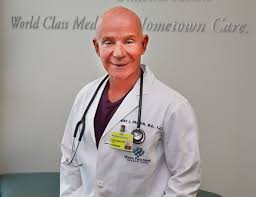 PatientPoint®, the trusted leader of patient and physician engagement solutions across all points of care, today announced a collaboration with national addiction prevention, treatment and recovery nonprofit Shatterproof to place opioid education in nearly 25,000 physician offices across the country. This program, the first national point-of-care initiative of its kind, will reach an estimated 15 million patients and caregivers each month and up to 200 million annually.
PatientPoint®, the trusted leader of patient and physician engagement solutions across all points of care, today announced a collaboration with national addiction prevention, treatment and recovery nonprofit Shatterproof to place opioid education in nearly 25,000 physician offices across the country. This program, the first national point-of-care initiative of its kind, will reach an estimated 15 million patients and caregivers each month and up to 200 million annually.
American Heart Association
See the following -
A New Meaning for Connected Health (Part 1)
 Those of us engaged in health care think constantly about health. But at the Connected Health symposium, one is reminded that the vast majority of people don’t think much about health at all. They’re thinking about child care, about jobs, about bills, about leisure time. Health comes into the picture only through its impacts on those things. Certainly, some people who have suffered catastrophic traumas–severe accidents, cancer, or the plethora of unfortunate genetic conditions–become obsessed about health to the same extent as health professionals. These people become e-patients and do all the things they need to do regain the precious state of being they enjoyed before their illness, often clashing with the traditional medical establishment in pursuit of health...
Those of us engaged in health care think constantly about health. But at the Connected Health symposium, one is reminded that the vast majority of people don’t think much about health at all. They’re thinking about child care, about jobs, about bills, about leisure time. Health comes into the picture only through its impacts on those things. Certainly, some people who have suffered catastrophic traumas–severe accidents, cancer, or the plethora of unfortunate genetic conditions–become obsessed about health to the same extent as health professionals. These people become e-patients and do all the things they need to do regain the precious state of being they enjoyed before their illness, often clashing with the traditional medical establishment in pursuit of health...
- Login to post comments
Document Search Tool May Boost Treatment of Vets with Congestive Heart Failure
A specialist in biomedical informatics, Dr. Jennifer Garvin has long been interested in improving the care of heart failure patients through evidence-based medical therapy. Cardiovascular disease, the number-one killer of Americans, is the leading cause of hospitalization in VA. Garvin, with the VA Salt Lake City (Utah) Health Care System, thus obtained VA funding and collaborated with colleagues to advance care in this area. She focused on the use of natural language processing, technology similar to that used by IBM Watson in VA...
- Login to post comments
Dr. Robert Drapkin: The Story Behind America’s Declining Heart Health
 American society today has become more passive and voyeuristic, spending a large portion of each day in front of computers, phones, tablets and TV screens or behind windshields. Occupational exercise has dwindled. Why are the trends going the wrong way? Robert Drapkin, M.D., a highly-respected board-certified physician in Internal Medicine, Medical Oncology and Palliative Care, believes that although sufficient exercise is vital, poor diet acts as a barrier. Dr. Drapkin sees three main reasons for this:
American society today has become more passive and voyeuristic, spending a large portion of each day in front of computers, phones, tablets and TV screens or behind windshields. Occupational exercise has dwindled. Why are the trends going the wrong way? Robert Drapkin, M.D., a highly-respected board-certified physician in Internal Medicine, Medical Oncology and Palliative Care, believes that although sufficient exercise is vital, poor diet acts as a barrier. Dr. Drapkin sees three main reasons for this:
- Login to post comments
PatientPoint and Shatterproof Launch National Point-of-Care Education Initiative to Fight Opioid Epidemic
- Login to post comments
Watching Too Much TV May Increase Risk Of Early Death In Adults
Adults who watch TV for three hours or more each day may double their risk of premature death compared to those who watch less, according to new research published in the Journal of the American Heart Association. “Television viewing is a major sedentary behavior and there is an increasing trend toward all types of sedentary behaviors,” said Miguel Martinez-Gonzalez, M.D., Ph.D., M.P.H., the study’s lead author and professor and chair of the Department of Public Health at the University of Navarra in Pamplona, Spain.
- Login to post comments